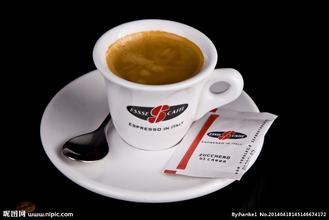Description of Coffee Variety Flavor in Silver Mountain Manor, Jamaica
Blue Mountain Coffee is the world's most superior coffee. The Blue Mountains are located in the eastern part of Jamaica Island. They are surrounded by the Caribbean Sea. Whenever the weather is clear, the sun shines directly on the blue sea, and the peaks reflect the bright blue light of the sea. Therefore, they are named. Blue Mountain peak elevation of 2256 meters, is the highest peak in the Caribbean, is also a famous tourist attraction. Located in the coffee belt, it has fertile volcanic soil, fresh air, no pollution, humid climate, foggy and rainy all year round (average precipitation is 1980 mm, temperature is about 27 degrees). This climate has created the world-famous Jamaica Blue Mountain Coffee and also created the highest price coffee in the world. This kind of coffee has all the characteristics of good coffee, not only the taste is rich and mellow, but also because the sweet, sour and bitter flavors of coffee are perfectly matched, so there is no bitterness at all, only moderate and perfect sourness. Generally, they are all single items to drink, but due to the low output and extremely expensive price, the market is generally prepared with coffee with similar taste.
Blue Mountain coffee differs from other coffees in transportation in that it is transported in 70 kg barrels, an imitation of the Bonifieur barrels produced in Guadeloupe last century. These barrels were originally used to carry flour from England to Jamaica, usually bearing the brand name and manufacturer's name. The Coffee Industry Council issues a certificate for all pure Jamaica coffee and stamps it before export.
The government of Jamaica used to insist that all Blue Mountain coffee was roasted in Jamaica to ensure quality. In fact, baking is a fine art, and doing it well requires experience, training, and expensive equipment. From the consumer's perspective, coffee beans should be available and consumed immediately after roasting. Coffee roasted in Jamaica is unlikely to meet this requirement. Now that Jamaica's green coffee beans are ready for export, it is necessary to take a closer look at the myth of Blue Mountain Coffee, as images of the past and realities of today often do not coincide. In 1725 Sir Nicholas Lawes brought the first Blue Mountain coffee seeds from Martinique to Jamaica, where they were planted in St Andrew. Today St. Andrew's is still one of the top three growing regions for Blue Mountain coffee, the other two being Portland and St. Thomas. Thomas) producing area. Within eight years, Jamaica exported more than 375 tons of pure coffee. Coffee production peaked in 1932, harvesting more than 15000 tons of coffee.
But by 1948, coffee quality had declined and Canadian buyers refused to renew the contract, so the Jamaica government set up the Coffee Industry Council to save the fate of premium coffee. By 1969, the situation had improved, as Japanese loans had improved the quality of production and thus secured the market. Even in 1969, Japanese coffee drinkers were willing to pay insurance for the coffee, but today it has reached the point of being a cult favorite--one that credit-conscious coffee retailers must stock anyway. A leading British retailer says he will continue to sell Blue Mountain coffee all year round regardless of price because he has many customers who only recognize Blue Mountain.
Today, 90% of post-harvest Blue Mountain coffee is purchased by Japanese. In 1992, Jamaica sold 688 tons of Blue Mountain coffee to Japan, 75 tons to the United States and 59 tons to Britain. Blue Mountain coffee is now in short supply, regardless of price, because the rest of the world can only get 10 percent of its production. For many years Langford Brothers was the sole supplier in Britain. Edmonds Group was later supplied by Salda Foods of Jamaica

Important Notice :
前街咖啡 FrontStreet Coffee has moved to new addredd:
FrontStreet Coffee Address: 315,Donghua East Road,GuangZhou
Tel:020 38364473
- Prev

Atlanta Manor Coffee Flavor taste introduction to the characteristics of fine coffee in the manor producing area
Blue Mountain Coffee is the most superior coffee in the world, and the weather, geological structure and topography of Jamaica provide an ideal place. The ridge that runs through Jamaica extends to the eastern part of the island, with the Blue Mountains rising to more than 2100 meters. Cool weather, foggy, frequent precipitation, use this rich soil Rain Water to reconcile. Here, the mixed planting method is used to plant coffee trees to make them mix with incense in terraces.
- Next

Introduction to the flavor and taste of Cliff Manor with very strong flavor.
Some small estates also grow Blue Mountain Coffee, such as Wallenford Manor, Silver Mountain Manor and Martinez's Atlanta Manor, which are also small-scale plantations, many of which are small landowners whose families have been working on this land for two centuries. The coffee industry in Jamaica is facing a series of problems, such as the influence of the whirlwind, the increase of labor costs and the increase of holidays.
Related
- Does Rose Summer choose Blue, Green or Red? Detailed explanation of Rose Summer Coffee plots and Classification in Panamanian Jade Manor
- What is the difference between the origin, producing area, processing plant, cooperative and manor of coffee beans?
- How fine does the espresso powder fit? how to grind the espresso?
- Sca coffee roasting degree color card coffee roasting degree 8 roasting color values what do you mean?
- The practice of lattes: how to make lattes at home
- Introduction to Indonesian Fine Coffee beans-- Java Coffee producing area of Indonesian Arabica Coffee
- How much will the flavor of light and medium roasted rose summer be expressed? What baking level is rose summer suitable for?
- Introduction to the characteristics of washing, sun-drying or wet-planing coffee commonly used in Mantenin, Indonesia
- Price characteristics of Arabica Coffee Bean Starbucks introduction to Manning Coffee Bean Taste producing area Variety Manor
- What is the authentic Yega flavor? What are the flavor characteristics of the really excellent Yejasuffi coffee beans?

